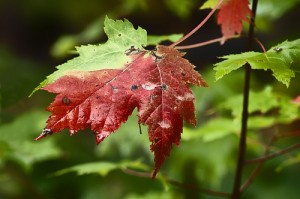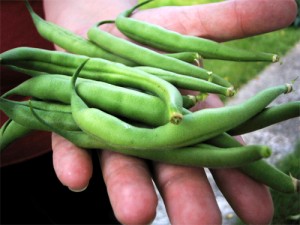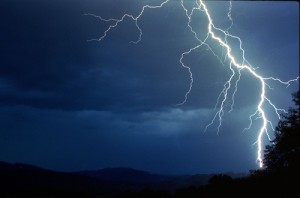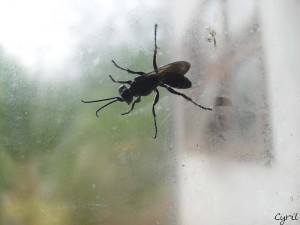One of the joys of walking, driving, or riding a motorcycle at this time of year is seeing all the tremendous, vivid colors of the changing leaves. I hope you are taking time in these weeks to enjoy the beauty of God’s creation!
Do you know why leaves change color just before they fall? Let me summarize, to the best of my limited understanding, why this happens. Leaves are green during the spring and summer because they contain chlorophyll. This green chemical allows plants to absorb the sun’s energy, which empowers the plants to grow and thrive and multiply. (Of course, this turns out to be a good thing for us humans, because plants take in carbon dioxide and expel oxygen, which is the reverse of our breathing process.) This chlorophyll must be constantly produced by plants in order to take full advantage of the boundless energy of the sun.
But when it comes time for trees to take a long Midwestern winter’s nap, they stop producing chlorophyll. They have stored up as much energy as they need to survive the winter, and they say farewell to their leaves, which cannot survive cold temperatures.
When the leaves stop receiving chlorophyll from the tree, their greenness disappears. It is then that we can see their true colors. The reds, yellows, and oranges we see in this season are actually the real colors of leaves all through the spring and summer, as well. Only when the leaves are connected to their branches, when they are filled with live-giving chlorophyll, do we see them in their healthy green state.
People are just like these leaves. We come in many different sizes, shapes, colors, and varieties. And it truly is a beautiful thing to observe the diversity and complexity of humankind. (Those of you who have gone to Guatemala on our recent mission trips will understand!) God has done marvelous work in forming us, each a unique creation loved deeply by our Creator.
“I have come so that they may have life, and may have it abundantly.” (John 10:10 NET)
And yet when we are connected to the true Source of Life, namely Jesus Christ, something amazing happens. The life given to us by Jesus Christ changes us in fundamental ways:
- Jesus makes us truly healthy. Just like leaves filled with chlorophyll, we are able to take in the life-giving Spirit of God and expel toxic, harmful behaviors and attitudes.
- Jesus unites us. Just as red, yellow, and orange leaves share the same greenness during the spring and summer, we all carry our own unique identities, but we are deeply united in our connection to Jesus Christ.
- Jesus gives us life. Just like leaves only stand a chance of surviving while connected to the tree, we are designed and built to be connected to the true Source of Life.
May God fill you with his Spirit each day, and may you remain connected to the Lord throughout the changing seasons of life!
Pastor David




